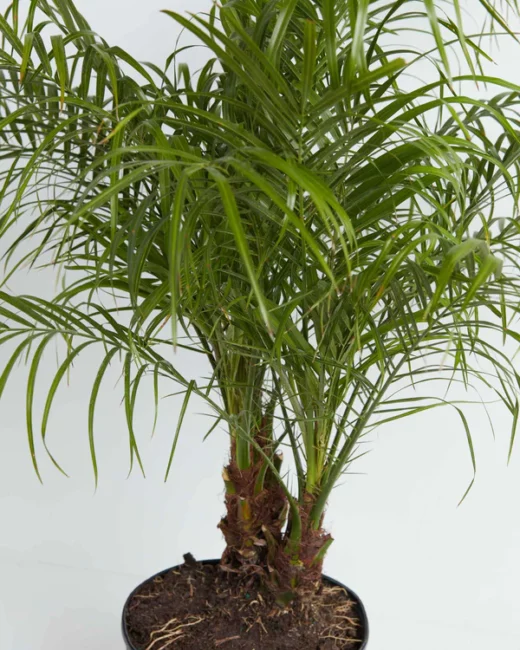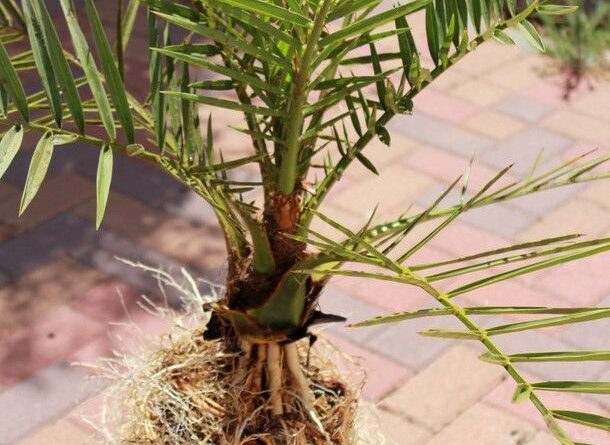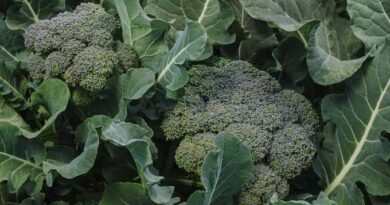Dates Roots: Economic Importance, Uses and By-Products
Dates Roots play a crucial role in the tree’s overall health and ability to thrive in arid and desert environments. Date palm trees have a deep-rooted system that includes a central taproot, which can grow quite deep into the soil. This taproot helps the tree access water from deeper underground sources, making date palms well-suited to arid and dry regions with limited surface water. In addition to the taproot, date palms also develop a network of fibrous and lateral roots closer to the surface of the soil. These roots help the tree absorb moisture and nutrients from the upper layers of the soil.
Date palms are capable of producing adventitious roots, which are roots that can grow from above-ground parts of the tree, such as the trunk or the base of fronds. These roots help stabilize the tree and improve its ability to anchor itself in loose desert soils. Date palm roots are known for their tolerance to high levels of salt in the soil, making them well-suited to coastal regions and areas with saline soils. This salt tolerance is crucial for their survival in arid environments where irrigation water may contain elevated salt levels.
While date palms can have deep taproots, the majority of their root system is located in the top 3 to 4 feet (0.9 to 1.2 meters) of soil. This shallow feeding root system allows them to efficiently capture moisture from the surface and take advantage of occasional rainfall. Date palm roots help prevent soil erosion in desert regions by stabilizing the soil with their extensive root network. This is particularly important in areas where wind and water erosion can be significant.
Date palm roots are well-adapted to survive and thrive in arid and challenging environments. They are a combination of deep taproots for accessing water, fibrous and lateral roots for absorbing nutrients, and adventitious roots for stability. This root system, along with their salt tolerance and soil erosion prevention abilities, allows date palms to flourish in desert regions where many other plants would struggle to survive.
The Economic Importance and Uses of Dates Roots

Date palms (Phoenix dactylifera) are widely known for their delicious fruit, but their economic importance extends beyond just the fruit. Dates roots, like many parts of the tree, have several economic uses:
1. Stabilizing Soil: Date palm roots play a crucial role in preventing soil erosion. The extensive network of roots binds soil particles together, reducing the risk of soil erosion due to wind or water. This is particularly important in arid regions where date palms thrive.
2. Land Reclamation: Date palm roots are often used in land reclamation projects. Their ability to anchor soil and reduce erosion makes them valuable in reclaiming land affected by desertification or erosion.
3. Biological Soil Improvement: Dates roots improve soil quality by adding organic matter when they die and decompose. This enhances soil fertility and structure, making it more suitable for agriculture.
4. Phytochemical Production: Dates roots contain various phytochemicals, including alkaloids, flavonoids, and tannins. These compounds can be extracted and used in pharmaceuticals, cosmetics, or the production of natural pesticides.
Read Also: Dates Flowers: Economic Importance, Uses and By-Products
5. Traditional Medicine: In some cultures, date palm roots are used in traditional medicine. They are believed to have therapeutic properties and are used to treat various ailments, although more research is needed to validate these claims.
6. Wood and Lumber: While the primary economic product of date palms is their fruit, the wood from date palm roots can also be used in various applications. It is often used for making small tools, handicrafts, and furniture.
7. Livestock Feed: The leaves, fronds, and roots of date palms can be used as fodder for livestock, especially in regions where forage resources are limited. The roots, in particular, can provide a source of nutrition for animals.
8. Biofuel Production: Dates roots, like other plant materials, can be used in the production of biofuels, such as biogas or bioethanol. The organic matter in the roots can be converted into bioenergy through fermentation or other processes.
9. Cultural and Religious Uses: In some cultures, date palms and their roots have religious and cultural significance. They are often used in traditional ceremonies and celebrations, which can have economic implications for local communities involved in the production and sale of date palms and their products.
10. Biodiversity Conservation: Date palm groves can provide habitat for various wildlife species, including birds and insects. This can have indirect economic benefits, such as supporting ecotourism and promoting biodiversity conservation efforts.
11. Carbon Sequestration: Like all trees, date palms and their roots contribute to carbon sequestration by absorbing and storing carbon dioxide from the atmosphere, which can help combat climate change.\
The Products and By-products That Can Be Derived From Cassava Dates Roots
Dates roots can yield various products and by-products.
Here’s a list of some of the products and by-products that can be derived from dates roots along with explanations:
1. Date Palm Rootlets (Seedlings): When date palm seeds germinate, they produce rootlets that can be harvested and sold as seedlings for planting new date palm trees.
2. Fiber and Rope: The strong and flexible fibers extracted from date palm roots can be used to make ropes, mats, baskets, and other woven products. These fibers are traditionally used in various handicrafts.
3. Medicinal Extracts: Date palm roots contain bioactive compounds that have been used in traditional medicine. Extracts from the roots are believed to have therapeutic properties, including anti-inflammatory and antioxidant effects.
4. Dye: Date palm roots can be used to create natural dyes. The extracted dyes are often used for coloring fabrics and crafts.
5. Animal Feed: After processing and detoxifying, date palm roots can be used as animal feed. They can provide nutrition to livestock and help reduce waste in agricultural practices.
6. Bioenergy: Dates roots, like other plant materials, can be processed to produce bioenergy through techniques such as anaerobic digestion and gasification. The resulting biogas or biochar can be used for heating or electricity generation.
7. Compost: Date palm roots can be composted to create nutrient-rich organic compost, which can be used to improve soil quality and enhance plant growth in agriculture.
Read Also: Dates Ovary: Economic Importance, Uses and By-Products
8. Soil Erosion Control: Dates roots mats or woven products can be used in erosion control efforts. They help stabilize soil in areas prone to erosion, such as riverbanks and slopes.
9. Landscaping and Decorative Items: The aesthetically pleasing appearance of date palm root clusters makes them suitable for landscaping and decorative purposes. They can be used as natural sculptures or accents in gardens and outdoor spaces.
10. Cultural and Traditional Uses: Date palm roots have cultural and traditional significance in some regions. They are sometimes used in rituals, ceremonies, or as decorative elements in traditional architecture.
11. Pharmaceutical Research: Dates roots may hold potential for pharmaceutical research. Scientists may explore the roots’ chemical compounds for new drug development or therapeutic applications.
12. Bioremediation: Date palm roots can be used in phytoremediation, a process where plants help remove contaminants from soil or water. Their extensive root systems can absorb and stabilize pollutants, improving environmental conditions.
In conclusion, it is important to note that the utilization of dates roots can vary depending on the region and local traditions. Additionally, sustainable harvesting and cultivation practices should be followed to ensure the long-term viability of date palm ecosystems.
Read Also: How to Get Started with Sugar Cane Minecraft









